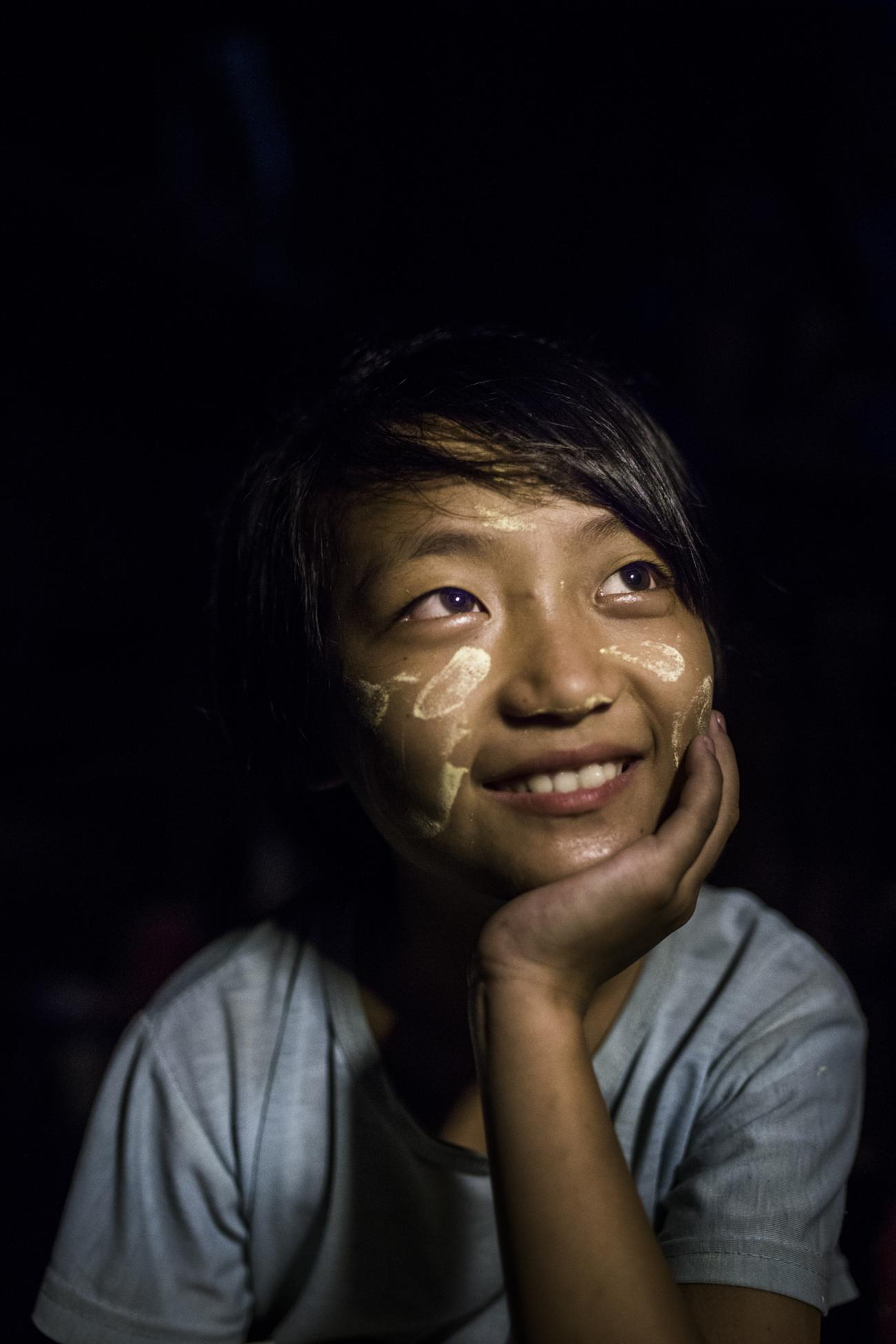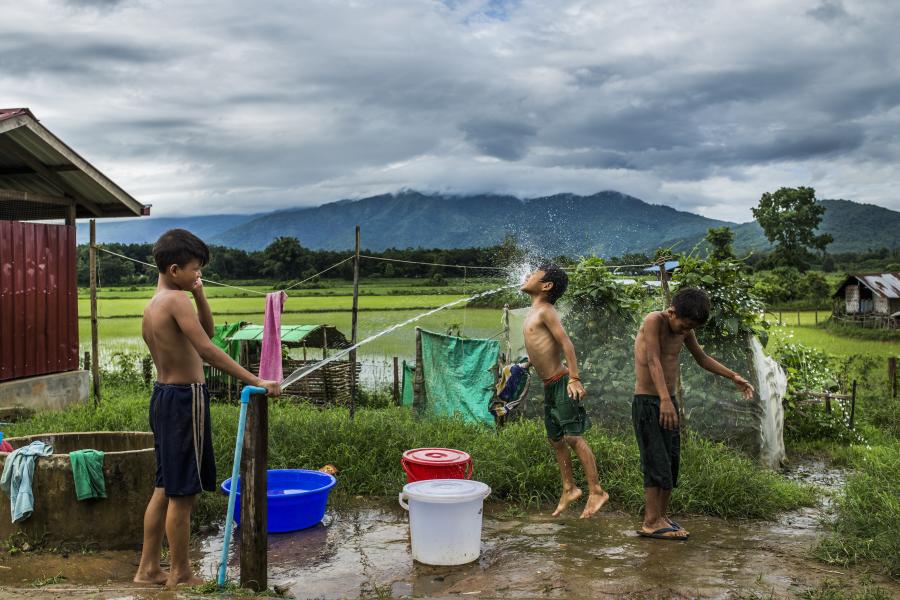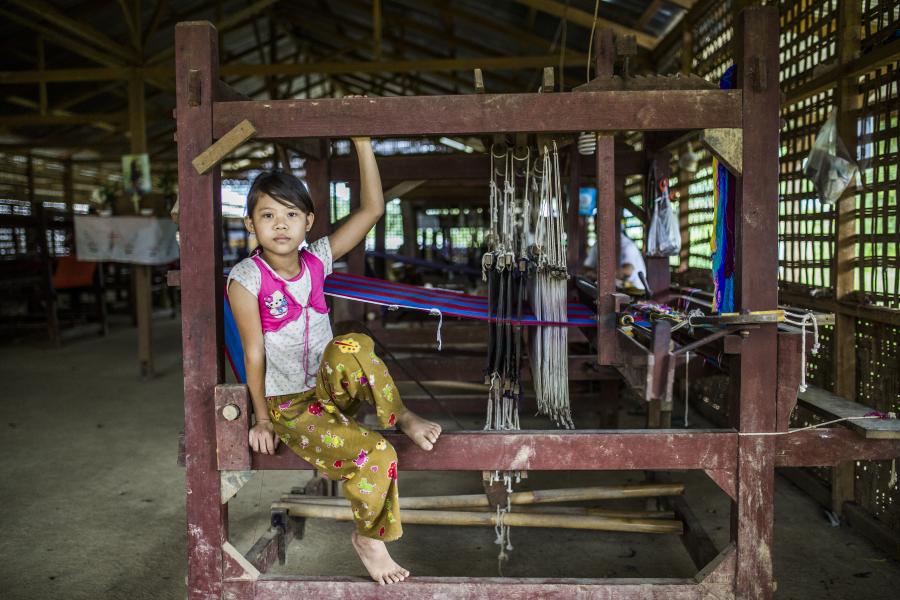Reimagining a better future in Kachin

UNICEF’s response to the COVID-19 outbreak focuses on preventative actions to reduce transmission and protect children and their families from the coronavirus.
The UN Secretary-General Antonio Guterres has said that ending the COVID-19 pandemic everywhere is both a moral imperative and a matter of enlightened self-interest. ‘’Extraordinary times demand extraordinary measures. We face a colossal test which demands decisive, coordinated and innovative action from all, for all.’’
In Myanmar, the UN Country Team, representing more than 20 UN agencies, is undertaking both development and humanitarian work which is impacting on the everyday lives of people.
UNICEF’s response to the COVID-19 outbreak focuses on preventative actions to reduce human-to-human transmission and protect children and their families from the coronavirus, supporting access to critical services and mitigating the secondary impacts of the crisis.
One night in April 2018, Lahtaw Seng Hkawn was sleeping with her three children inside their village home in Injangyang, Myanmar when they heard gunfire: “We had to run immediately, there was no time to take anything but just the clothes on us,” she says.
Since then they, like many thousands of families, have spent most of their time living in Internally Displaced Persons (IDP) camps in Kachin State, north Myanmar.
It’s a long way from home for children like 9-year-old Mai Ra.

Since the COVID-19 lockdown, Mai Ra has been unable to attend her regular summer school and has spent her time helping her family.
For her mother, it has been a testing time. She and her children depend mainly on the camp’s provisions – 15,000 Kyats per person per month which means only 500 Kyats (or a mere $0.35) per person per day for a day’s meals.
She worries about her children’s education and that they will be stuck inside the camps for a very long time. “Sometimes they seemed to be down and sad. I don’t know how long this will go on. Since I don’t have a TV, or access to the news and I don’t use Facebook, I feel disconnected,” she says, “I pray every day that they will find a vaccine quickly.”
This IDP camp suffers from perennial water shortages with heightened risk of water borne diseases. UNICEF in collaboration with World Vision and Karuna Mission Social Solidarity (KMSS) constructed a temporary water purification plant to ensure continued availability of clean water for an estimated 1,200 IDPs. The provision of clean water was accompanied with hygiene promotion and installation of hand washing stations at the entry to the camp to ensure regular hand washing as one of the ways of reducing the risk of infection with covid-19.

Despite the testing times, Mai Ra – the eldest of three – still has a positive outlook on her future. She talks about her love of dancing, and when she grows up. “I want to become a doctor one day,” she says.
Closed in
When the gates of Maina IDP camp closed in April, the family of 9-year-old Lu Aung was not prepared to face the challenges to come, both financially and mentally.
Her mother weaved traditional dresses – longgyis – and her father was a labourer, but it has become nearly impossible to work.

“We tried to save on our meals,” says Lu Aung’s mother, Maran Htu. “These days, we just cook more vegetables, potatoes or sometimes eggs but could rarely eat meat," she says.
During lockdowns, 9-year old Lu Aung spends her time practicing weaving. She already knows how to weave a longyi and often ask her mother to buy her a handloom so she can start making them herself.

"One day, I want to make my own longyi with many colors and wear it." But Maran Htu prefers that her daughter spends more time focusing on her studies. Lu Aung however wants to make time for both: “I want to be a doctor or a teacher,” she says then adding, “or a clothing designer”.
With reports of increased tensions and stress within the families and increasing antisocial behaviors amongst children and youth due to the prolonged lock down measures, UNICEF provided psychosocial support for all children, life skills sessions for adolescents and distributed coloring books and crayons for the toddlers.

Ze Naw, 36yr, is a Kachin woman and mother of five children in Maina IDP camp. As she speaks, she tends to her new baby.
“When we first heard the news, we decided to stock food,” she says. “We bought rice, oil, salt, dried fish and potatoes and then soon came the lockdown.
“The gates of the camp closed and there was no more income except for the provisions, children couldn’t play, we couldn’t gather at church to pray. Everything went quiet. I was worried and prayed that it wouldn’t get worse.
“I am especially sad for the children as I think they suffer a bigger impact than adults, like mentally, they seemed depressed for some time,” she says.
Despite the hardships, there has been some small positives she says. The family has had more time together to bond and sees restrictions relaxing now, allowing children like her 13-year-old daughter to play with friends again.

15-year old Seng Hkawn, lives in Pa La Na IDP camp with her parents and two siblings. June 2020 should have been an exciting time for her: she passed Grade-9 and was preparing to step into Grade 10. She bought the Grade-10 textbooks with her savings and her mother sold a pig for her summer tuition.
But sometimes Seng Hkwaren can’t go to school, as she cooks and does household chores.
“I want to go to school already. I’m afraid that my time would be wasted.”
Pa La Na is one of the few IDP camps with a school dedicated for IDP children like Seng Hkwaren and children from the host community.
UNICEF completed the renovation of post and primary school buildings while the Early Childhood Care and Development (ECCD) building renovation is ongoing. In addition, three days parental education awareness training was conducted to prepare for home-based schooling should the Covid-19 prolong school closure. All children were provided with stationery books.
“I want to become a nurse,” Seng Hkawn says when asked about her dreams. “I want to treat sick and poor people and work in hospitals far away outside the camps. I think the uniform of a nurse is beautiful and I want to wear it one day.”




